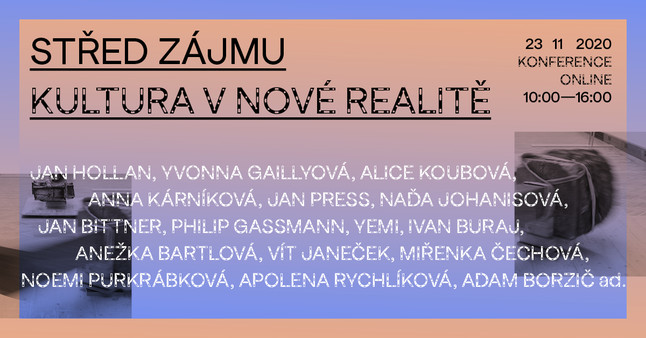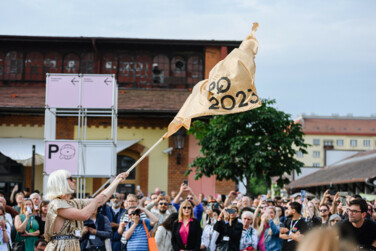The conference is organised by The Arts and Theatre Institute and Creative Europe Desk CZ. You can find more information about the conference on special website.
The pandemic that broke out at the beginning of this year has changed the world. We suddenly found ourselves in an unknown situation, which has put governments, institutions, communities and individuals to the test. This global experience has brought about a number of questions and become an opportunity to revise and undertake transformations. On all levels and in all fields, people have posed similar questions: what is the way forward, how do we work in the new reality, what approach should be adopted, and how to prepare and adapt to broader and long-term changes.
As the representatives of the cultural sector, which has been profoundly shaken, we pose the very same questions and additionally ask: what will the role of art and culture be in a world that has been undertaking such a dynamic transformation, how will cultural organisations adapt to new circumstances and needs, how will the content and its distribution change, and how will technology influence creation, its sharing and its perception. Will creativity be the main instrument of adaption?
The international conference welcomes sociologists, philosophers, cultural professionals and artists, who will respond to these fundamental questions and confidently pose many others. The world will never be the same – we take it as good news and an opportunity.
PROGRAM
Special appearances: Philip Gassmann, David Korecký, Jan Hollan, Yvonna Gaillyová
Host: Jana Návratová and Ondřej Cihlář
Transformation of society // Panel 1
Guests: Alice Koubová, Anna Kárníková, Jan Bittner, Naďa Johanisová
No longer than a year ago we were dealing with sustainability, discussing how to combine a market economy with the necessity to reduce its devastating ecological impacts. The world was affected by activists’ initiatives, regular public protests were held in front of parliaments and government buildings, there was one ecological conference after another. The globalised world began to admit it is under real threat. In what situation do we find ourselves today, when the fully-firing engine of the world economy based on consumption hits the brakes sharply? Is it still possible to talk about sustainability? Is a wealthy society able to give up its privileges and tighten its belt? Is our reality at the door of global social transformation, or we heading towards a real dystopia?
Audit of culture // Panel 2
Guests: Jan Press, Yemi, Ivan Buraj, Vít Janeček, Anežka Bartlová
Measures implemented in response to COVID-19 affected cultural organisations immediately and in its full scope. Many of them made use of digital space, to which they moved their activities, and started to reconsider their future direction and mission. Does the overheated economy imply that the culture is overheated too? Has there not been too many cultural projects at times? And what about quality, how should it be measured, sustained or raised? How is the current situation perceived by cultural managers? To what extent are they able to get through an audit, which would examine the missions of their organisations? What does the current situation mean for donors – for those, who decide on subsidies and grants? What should be supported in the field of arts and culture in the future, and under what conditions?
Perspective of artists // Panel 3
Guests: Miřenka Čechová, Apolena Rychlíková, Adam Borzič, Noemi Purkrábková
The coronavirus crisis brought artists the space to concentrate and settle down. However, it has also exacerbated uncertainties, which were an intrinsic part of their lives already before the crisis. In our debate, we will ask how they perceive the dynamics and the changing paradigm of the contemporary world. Has the coronavirus crisis transformed the explored topics and sources of their inspiration? What has changed in their creative process and operation due to the pandemic? And does their role in society have some new assignment?
The conference is organised by The Arts and Theatre Institute and Creative Europe Desk CZ.

